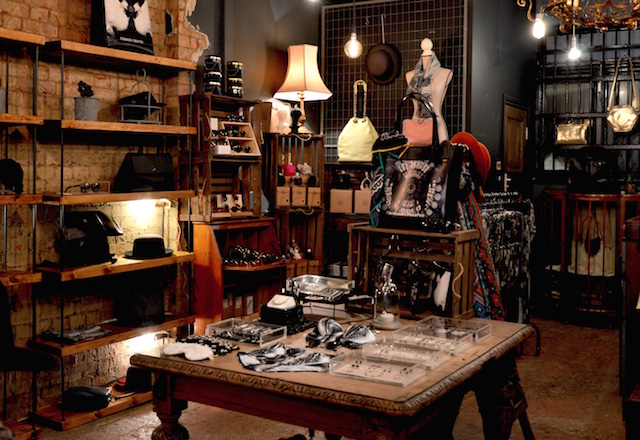Life is all about making changes, and I’m going through a big one right now. My girlfriend and I are planning a move from our three-bedroom townhouse in Georgia to a much smaller one-bedroom apartment in D.C.
The struggle with this change is simple: we have too much sh*t.
I mean, what are we supposed to do with all this stuff? Where did it even come from?
After falling in love and eventually moving in together, I knew we were going to have more things, but my God.
We each make pretty good money, and I’m now convinced this can be more of a curse than a blessing. Anytime we go shopping, one of us inevitably comes home with something stupid (mostly me). Kylo Ren lightsabre? Who doesn’t need one of those.
This is just what we do. We impulse buy and, over time, accumulate.
Turns out, we’re not alone. I dug into the research and came upon some shocking information. There’s an industry that’s absolutely skyrocketed since the early 2000s. I’m talking 22 billion dollars in annual revenue, and no, it’s not Uber.
It’s the self-storage industry.
What?
Apparently, Americans need 2.3 billion square feet of extra space just to fit their stuff. To put this in perspective, our homes on average are three times the size of the average household 50 years ago. But it’s not enough.
In addition, according to the American Psychological Association:
“We own twice as many cars per person, eat out twice as often and enjoy endless other commodities that weren’t around then—big-screen TVs, microwave ovens, SUVs and handheld wireless devices, to name a few.”
At least I know I’m not alone.
The embarrassing part? Our happiness levels have basically flatlined. We have more stuff than ever before, yet still we sit in the doctor’s office for anxiety and chronic depression. Instead of riding around on jet skis like the happiest people in the world, millions suffer from intense psychological disorders.
All of this made me want to look deeper at why we’re inclined to keep buying.
The Psychology of Wanting More.
There are many theories out there as to the origin of why people love to accumulate stuff. The two more prominent ones, in short, are as follows:
1. Natural resources are limited, and in terms of Darwin’s theory of evolution, humans have to compete over them, trying to claim as much as possible for their own well-being.
2. Dissatisfaction (i.e. our urge to buy more stuff) keeps us on the lookout for ways of improving our chance of survival. If we were happy with what we had, we wouldn’t be alert, and other beings would take advantage. Kind of similar to why we fall asleep after eating so much. Our stomachs and brains are satisfied, and so they wind down.
Each of these theories has its shortfalls, and neither confirms with 100 percent affirmation why we behave like this today. However, it’s suggested that our materialism is driven in part as a reaction to inner discontent.
Basically, we’re unhappy with ourselves and our lives, so we seek out alternatives for bringing us joy. Some desperately lust for love; others fill the void with bigger, better, more stuff.
There’s a never-ending list of studies that show this simply doesn’t work when it comes to long-term happiness. What I found that’s fascinating, though, is that it actually does make us happy—if only for a brief period. In fact, it’s not even acquiring the item that brings us the most joy; it’s the thinking about it that gets our neurons firing.
Fantasizing about that new thing we’re planning to buy spikes dopamine levels in the brain similar to the effects of drug use and binge eating. Once we get what we’re after, the euphoria quickly fades.
Don’t believe me? Look no further than the men and women at your local bar:
“So and so only wants what they can’t have.”
And it’s not just in the love arena. Remember that new Macbook you wanted before you went off to college? You worked your ass off at Red Robin bussing tables through late nights to get it. When you finally got it, it was everything you’d hoped and dreamed.
How long did that last? After a little while, the allure of the laptop fades, and it’s just another thing you have. Ten years from now when you think about that Macbook, I highly doubt it will bring you the same joy it did during the anticipation phase.
Highly renowned Psychologist Daniel Gilbert once wrote, “Psychologists call this habituation, economists call it declining marginal utility, and the rest of us call it marriage.”
If You Really Need More of Something, Indulge in Experiences.
Now, I’m not trying to forbid you from buying things. I’m only suggesting you rethink spending habits. If you really need that new iPhone and can afford it, by all means go for it.
But there is something you can buy that is proven to give you longer lasting happiness—and that’s experiences.
Cornell psychology professor Thomas Gilovich talks about experiential purchases being associated with identity, connection and social behavior. Basically, experiences make people happier than possessions, even after they’re long gone. (This is somewhat counterintuitive, as something material lasts forever, and the experience is history after it’s over.) He goes on to say that even a bad experience becomes a good story. This couldn’t be more true.
And the kicker? The happiness of anticipation for an experience is actually stronger than waiting to buy that new awesome thing. That’s a win-win for experiences over stuff.
According to Amit Kumar, Cornell doctoral candidate, the new research confirms this notion. There was a study done involving people waiting for experiences compared to others waiting for material goods. In short, those waiting for experiences were in much better moods.
I picture myself waiting in line for the Top Thrill Dragster at Cedar Point—”totally worth the three hour wait.”
Learning to Live with “Enough.”
With a better understanding of why we behave the way we do, obviously I looked at how to improve.
The first step is getting in the mindset that what we currently have is enough (oftentimes, more than enough). This is assuming that we have met our basic human needs like food, water and shelter.
It’s no secret that the key to long-term happiness is being content with what we have. Here are a few ways to practice:
Write in a gratitude journal.
According to a newsletter published at Harvard, study participants who focused on gratitude for a period of time experienced more happiness, exercised more and had fewer visits to the doctor’s office. Take the time to appreciate the things you already have and write them down.
Meditate and reflect.
Meditation doesn’t always have to be about clearing your mind. You can use it to simply relax and even practice gratitude.
Deep breathe, pause, and reflect.
Too “busy” to take a few minutes and journal or meditate? Okay, fine. But there’s no reason you can’t take 30 seconds to practice deep breathing while reflecting on the little things in life. You can do this anywhere.
The Step Beyond—Learning to Want Less.
Looking to take things a step further? Try being happier with less. Once you master the art of being happy with what you have, up your game a bit.
Learn to control impulses and stop buying things.
Get rid of stuff around the house—clothes, trinkets, furniture.
Do more of the things you love.
Do less of the sh*tty stuff.
Play.
I think we’d all be a little better off if we got back to the basics and enjoyed the simple things.
Urges to want more will come and go, but as long as we recognize them for what they are, the moment will pass. It’s an ongoing battle for life and a practice to say the least.
My advice is to not be intimidated by it. Everything gets easier in time. And don’t feel guilty when you indulge every now and then. We all do it, and to be honest, sometimes we deserve to.
Summing It All Up.
To summarize, we’re all slaves to our natural brain functions, and it’s a you-know-what to change that. The key to coping and overcoming is embracing our human faults and practicing better habits.
The science shows that more material items don’t make us happier for the long haul. Things like vacations and nights out with friends are much better at doing so. Turns out that the secret to long-term happiness is appreciating what’s right in front of us.
And if you’re really trying to impress, learning to be happier with less can be freeing.
Again, I’m by no means suggesting that we all ditch our stuff to live in the wild. I’m merely suggesting we learn to appreciate more with less. As you’ll come to find, simplifying your life is a journey, not a silver bullet. We all struggle to different extents, so don’t be afraid to reach out for help.
Thanks for reading.
~
Relephant Read:
A Simple Approach to Getting Rid of Clutter.
~
Author: Jason Gutierrez
Editor: Toby Israel
Images: Christelle Bourgeois/Unsplash // Cyril Caton/Flickr
~
 Share on bsky
Share on bsky


Read 6 comments and reply